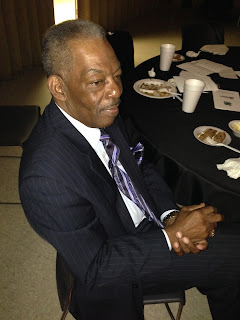4-H is Cows, Cooking and So Much More

How could I help but notice the photo in the paper last week of the students holding chicks that they had hatched in their classroom, right before Easter? How many people realize that the Embryology Project (hatching the chicks) they did is a 4-H project? I know a lot of people are thinking that it has to do with farm animals, so it makes sense that it is a 4-H project. Believe it or not, after 100 years (yes, this is our centennial), we do so much more than just cows and cooking.
Back when 4-H started, there were two kinds of clubs - boys' corn growing clubs and girls' canning clubs. Today, we have four kinds of clubs - community clubs, project clubs, specialty clubs, and in-school clubs. Clubs now include both boys and girls and are very easy to start - you just need one adult volunteer and five youth. Community clubs are simply 4-H clubs based in the community. They work on a variety of 4-H projects and activities, including community service, county competitions, and fair booths. The project clubs are set up in the same way as a community club, but they are set up to work on one specific project and then they disband. A specialty club concentrates in just one area. We have five specialty clubs in Robeson County right now - two Horse Clubs, an Animal Science Club, an Electric Club, and a Junior Master Gardener Club. In-school clubs are clubs that are set up during a school day. Many people remember when 4-H went into the schools, and part of the school day was set up around 4-H. We don't do that anymore, but we still work with home-school groups and in-school organizations, such as Future Farmers of America (FFA), to set up clubs and work with these youth to offer them opportunities. Clubs allow for learning in a safe and nurturing environment. Through research, we can show that youth involved in clubs increase their social interactions, leadership, and goal-setting capabilities.
Clubs are an important part of 4-H but only one aspect of this incredibly large program. We also offer in-school enrichment and after-school programming. In both cases, we teach the teachers and after-school providers our research-based, hands-on curriculum. One such piece is Embryology - probably the most well-known and popular piece of curriculum that we offer. Next year, we hope to implement our Soil Solutions curriculum in fourth grade classrooms as well. Students will get to play with dirt and test scientific methods to learn about soils. It is all a part of our trend to focus on Science, Technology, Engineering, and Mathematics, or STEM, curriculum within the schools. Extension's 4-H curriculum is researched-based from North Carolina State University and follows the public schools curriculum guidelines. Basically, what we are offering teachers is free supplemental curriculum (and training) to enhance what they are doing in the classrooms and make learning fun for their students. When the youth have fun, they are more likely to be engaged and learn. Thanks to United Way support, we can offer these great hands-on opportunities to teachers for free, allowing your child or grandchild to experience learning like never before.
Learning is what 4-H is really about. We take every opportunity to enhance our youth's lives with curriculum (on every subject from animals to robotics), life skills (leadership, goal setting, and decision making), and plain old-fashioned fun. During the course of a year, we have more than 80 county events, which include trainings for adults and youth, county competitions (Talent Showcase and Public Speaking), and summer programs (weeklong day camps and weeklong overnight camps).
Over the last 100 years, we have grown to meet the needs of our youth in this ever-changing global society to help them be successful. So when you see 4-H at the Robeson Regional Agricultural Fair this year, remember that the Animal Science Projects and Livestock Shows are 4-H, but they are only a small part of what we do, because we are more than cows and cooking. The 4-H Program is about youth development and making the best better.
If you would like more information on 4-H opportunities in Robeson County, please contact the 4-H office at 671-3276. You can also check us out on the web at robeson.ces.ncsu.edu or learn about our different programs at www.robeson4-H.blogspot.com.

.jpg)

Comments